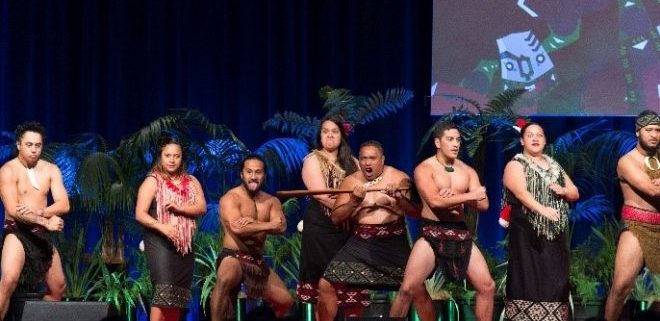Tripartite Summit: Māori economy – becoming a significant economic powerhouse
- Several decades ago, there was a common perception that all Māori were factory workers, truck drivers, or cleaners – Maori success in business was only ever seen as the exception.
- Māori are quickly becoming significant economic powerhouses, owning an estimated NZ$40 billion of assets in New Zealand.
- Māori are spiritual people, and their motivation in business reflects their world view: that long-term sustainability is more important than profit.
“Māori are a people of the land, and everything we do relates to the environment around us. Though that said, we also have a significant interest in digital, IT, education, and tourism.” – Te Ururoa Flavell
“It is only several decades since there was a common perception that all Māori are factory workers, labourers, truck drivers, or cleaners,” said Paul Majurey, senior law partner and of Ngati Maru/Marutuahu descent at the Tripartite Economic Summit. “Success in Māori business was only ever seen as an exception.”
But for many centuries, Majurey explained, Māori flourished in New Zealand. In the 1850s, Māori still owned the majority of land in New Zealand. All of this changed in the 1860’s, and yet they continue to have the skills and the integrity to flourish in the industrial age.
Despite adversity, Māori are again becoming significant economic powerhouses. Majurey predicts that in another decade, Māori will be one of the cornerstones of the New Zealand economy.
Auckland Māori own more than $23 billion of assets, contributing more than NZ$4 billion to Auckland’s GDP. New Zealand Māori assets account for an estimated NZ$40 billion, including 40% of New Zealand’s export forest land, 40% of our fishing quota, 10% of kiwifruit, and a high percentage of land production. “As further settlements occur, the value of the combined Iwi asset portfolio is expected to grow significantly,” said Majurey.
Te Ururoa Flavell, co-leader of New Zealand’s Māori Party, spoke at the Summit about the legend of Māui fishing up the North Island with the jawbone of his grandmother.
“The fish that was pulled out of the ocean was a traveler and an entrepreneur. He may have made it to China and Los Angeles before his final destination of Auckland,” he said.
Flavell explained that to Māori, economic development translates to jobs, enterprise, land development, and infrastructure in cities and towns. While private enterprise is required to answer to shareholders, Māori business has to answer to Iwi and they must balance economic returns with social and environmental concerns, to ensure it remains in place for future generations.
Māori are not new to international markets, innovation, and enterprise, Flavell told attendees. “Māori can trace their DNA back to China over 6,000 years ago. This demonstrates that Māori people have historically been resourceful, resilient, and adaptable.”
“On the other side of the Pacific, some of our ancestors spread to the Americas. We have strong links to groups in North America, and Māori people are now seeking partners to unlock land productivity in that market,” he said.
Māori businesses have a strong desire to move up the value chain, participate in international markets, and use the tradition of storytelling to carve out a point of difference to global markets. The future will look different for Māori business as they differentiate into new sectors.
“Māori are a people of the land, and everything we do relates to the environment around us,” said Flavell. “Though that said, we also have a significant interest in digital, IT, education, and tourism.”
“Māori will never lose interest in the primary sector, but they are looking to diversity and form partnerships with government, private companies, and foreign investors all over the world in order to grow their asset base in New Zealand.” -Paul Majurey
Majurey agreed with Flavell – “Māori will never lose interest in the primary sector, but they are looking to diversity and form partnerships with government, private companies, and foreign investors all over the world in order to grow their asset base in New Zealand.”
Both Flavell and Majurey emphasised how important relationships are. For Māori, relationships are about mana, and of significant importance. Māori are spiritual people, and agreements are based on trust. Their motivation in business reflects their world view: that long-term sustainability is more important than profit.
“Māori want to hear your heart, not just slick words,” Flavell said. “If there is no connection to your heart, then there can be no deal – because it will be doomed from the start.”




Leave a Reply
Want to join the discussion?Feel free to contribute!